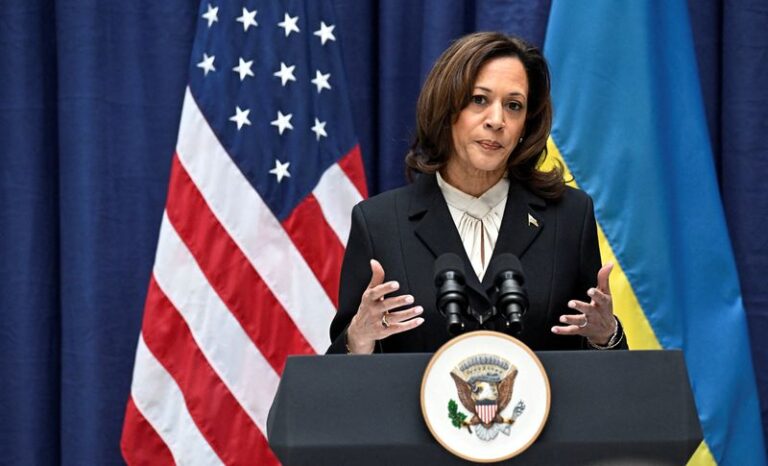WASHINGTON (Reuters) – U.S. Vice President Kamala Harris is a potential Democratic presidential candidate in November’s presidential election. Here are her views and actions on some key business topics.
Technical Regulation
As California’s attorney general, Harris sued eBay in 2012 for anti-competitive employment practices related to its no-poach agreement with Intuit, and the company paid a nearly $4 million settlement in 2014.
In 2015, she forced the home design app Houzz to hire a chief privacy officer after allegations that the company was recording sales calls without proper notice or consent.
One of her signature issues has been curbing pornography on social media, particularly “revenge porn” – the posting of explicit photos without the subjects’ consent. She claimed credit for a pressure campaign that led Facebook, Alphabet Inc’s Google, Microsoft and others to take steps to remove certain explicit images.
“I can’t emphasize enough how powerful the leaders of the technology industry were,” Harris said at a press conference at the time. “I’m not saying any of them were happy to get a call from the attorney general saying, ‘Come on in, I want to talk to you,’ but they all did. They did.”
Big Tech
Harris, the California attorney general candidate, has reportedly declared to potential donors that she is a “capitalist.” She is generally seen as having close ties to prominent tech executives and investors in her home Bay Area’s local industry. She attended the wedding of early Facebook executive Sean Parker. Her brother-in-law, Tony West, is Uber’s chief legal officer.
She also received donations from prominent venture capitalist and Linkedin co-founder Reid Hoffman, billionaire John Doerr, and venture capitalist Ron Conway, and she was supported by executives from major tech companies, including then-Facebook COO Sheryl Sandberg and Salesforce’s billionaire CEO Marc Benioff.
Climate and Energy
Harris’ positions on climate and energy are similar to Biden’s, but she has made it clear throughout her career that clean energy and environmental justice are priorities.
When Biden announced Harris as his running mate for the 2020 presidential election, he highlighted her tough stance against big oil companies during her time in California, pointing to the lawsuits she filed as San Francisco’s district attorney from 2004 to 2011 and then as the state’s attorney general before becoming a senator in January 2017.
Last year, Harris took part in international climate negotiations for the first time, announced a $3 billion contribution to the Green Climate Fund and delivered her first major climate-focused international speech.
As vice president, Harris also helped develop policies at the Environmental Protection Agency that address long-standing environmental justice issues, including a multi-billion dollar program to replace lead pipes and lead paint across the country.
artificial intelligence
As vice president, Harris has been particularly outspoken about artificial intelligence, warning of the “existential” threat of AI in a November 2023 speech, saying it “could endanger the very existence of humanity.”
In meetings with tech executives including Microsoft’s Satya Nadella, OpenAI’s Sam Altman and Alphabet’s Sundar Pichai, Harris warned them that they had a “moral” obligation to prevent potential dangers from AI.
She supported President Biden’s executive order on AI, which calls for stronger protections for consumers, focusing on the impact of AI-generated scam calls and unlabeled AI-generated content.
(Reporting by Greg Bensinger in San Francisco and Valerie Borkovich in Washington; Editing by Chris Sanders and Leslie Adler)

